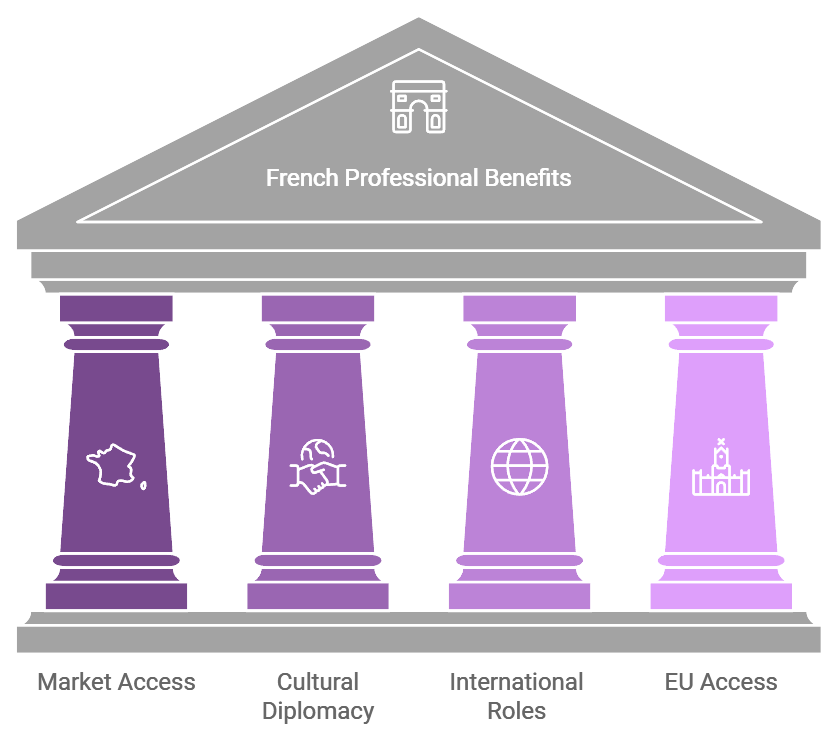Is Learning French Harder Than English? A Comprehensive Analysis
The simple answer is: French is generally harder for English speakers to learn than English is for French speakers. This is mainly due to French’s complex grammar rules and pronunciation patterns. However, the real answer isn’t quite so straightforward.
Key Takeaways
- French takes 24-30 weeks (600-750 hours) to learn for English speakers
- English requires 30-36 weeks for French speakers to reach working proficiency
- Grammar complexity is higher in French due to gendered nouns and verb conjugations
- English has more irregular pronunciation rules but simpler grammar
- Modern learning tools have made both languages easier to master
The Science Behind Language Learning
Learning a new language changes your brain – literally. Recent studies show that bilingual people have more gray matter in key brain regions. But how do French and English stack up in terms of learning difficulty?
Learning Timeline Comparison
| Aspect | French | English |
|---|---|---|
| Basic Conversation | 3-4 months | 2-3 months |
| Working Proficiency | 24-30 weeks | 30-36 weeks |
| Full Fluency | 2-3 years | 2-4 years |
| Writing Mastery | 3-4 years | 4-5 years |
Grammar Battles: French vs English
French grammar presents unique challenges that English speakers often struggle with. Let’s break down the main differences:
French Challenges:
- Gendered nouns (le/la)
- Complex verb conjugations
- Subjunctive mood usage
- Mandatory agreement rules
English Challenges:
- Irregular verbs
- Phrasal verbs
- Article usage
- Tense consistency
Pronunciation: The Real Story
Many learners find French pronunciation tricky, but is it really harder than English? Here’s what the research shows:
French Pronunciation Rules
- More consistent sound patterns
- Liaison rules between words
- Nasal sounds not found in English
- Silent letters follow predictable patterns
English Pronunciation Rules
- Irregular spelling-to-sound relationships
- Stress patterns affect meaning
- Regional accents vary significantly
- Multiple pronunciations for same spellings
Modern Learning Methods
Today’s language learners have advantages their predecessors didn’t. How has technology changed the game?
Digital Learning Impact:
- AI-powered apps provide personalized learning paths
- Virtual reality enables immersive practice
- Speech recognition helps perfect pronunciation
- Social media offers authentic language exposure
Professional Benefits
Why does choosing between French and English matter for your career?
| Career Aspect | French Value | English Value |
|---|---|---|
| Global Job Market | 29 countries | 67 countries |
| Average Salary Increase | 15-20% | 20-25% |
| Business Usage | 4th most used | Most used |
| Online Content | 4% of internet | 60% of internet |
Regional Variations Matter
Did you know that French in Paris differs from French in Montreal? Understanding regional differences is crucial:
French Variations:
- European French (standard)
- Canadian French (québécois)
- African French
- Caribbean French
English Variations:
- American English
- British English
- Australian English
- Indian English
Success Strategies
Want to master either language? Here’s what research shows works best:
- Immersion Techniques
- Daily practice with native content
- Language exchange partnerships
- Cultural integration activities
- Study Methods
- Spaced repetition systems
- Context-based learning
- Pattern recognition practice
The Digital Advantage
Modern learners have powerful tools at their disposal:
Most Effective Learning Tools:
- Language learning apps (Duolingo, Babbel)
- Video streaming platforms
- AI conversation partners
- Online tutoring services
Professional Context
In the business world, both languages offer distinct advantages:
French Professional Benefits:

- Access to French-speaking markets
- Cultural diplomacy opportunities
- International organization roles
- European Union business access
English Professional Benefits:
- Global business communication
- International tech industry access
- Academic research opportunities
- Multinational company positions
Cultural Integration
Success in either language requires understanding cultural contexts:
French Cultural Elements:
- Formal vs informal address
- Social etiquette importance
- Cultural references
- Non-verbal communication
English Cultural Elements:
- Direct communication style
- Small talk customs
- Business etiquette
- Humor and idioms
Remember, the “harder” language often depends on your native tongue and learning style. While French may present more initial challenges for English speakers, both languages are absolutely learnable with the right approach and dedication.
